“Menopausal arthritis” wasn’t coined until 1952, but the correlation between menopause and osteoarthritis — a condition characterized by joint degradation leading to pain or soreness, among other symptoms — had been established over two decades prior. Today, decreasing estrogen levels are deemed the culprit for menopausal joint pain.
Not all women will suffer from menopausal joint pain, but those who do have a whole range of supplements to choose from to ease the condition. Whether you’re approaching, undergoing, or just through with menopause, the products listed below can help make those daily aches more manageable and keep you in control of your life.
Key Takeaways
|
Our Top Picks
We researched different supplements that fight menopausal joint pain and found the top five brands you must consider. They’re not just proven to work, but they are also effective for most types of joint pain. If a friend or family member got it from an accident or any other cause, these products can help them, too. No matter the cause of the joint pain, our bodies will generally have the same reaction to it.
Furthermore, the five brands we’ve discovered are all manufactured by reputable names in the health supplement industry. Explore our recommendations and find the one that fits your needs.
| Image | Product Name | Best Of | |
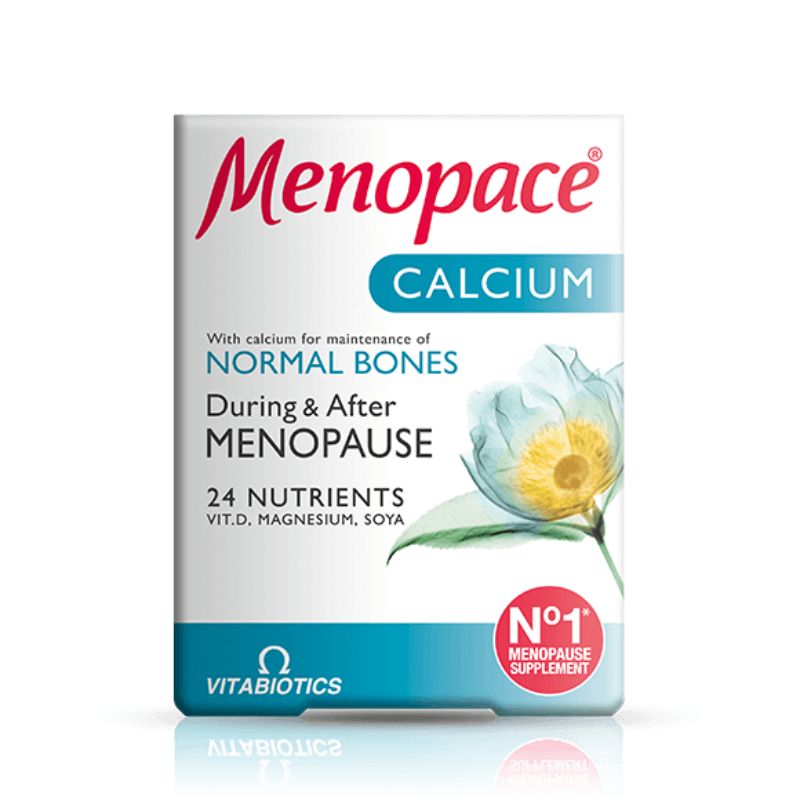  | Vitabiotics Menopace Calcium/Menopace Plus | Best Budget Choice | ↓ Jump to Review |
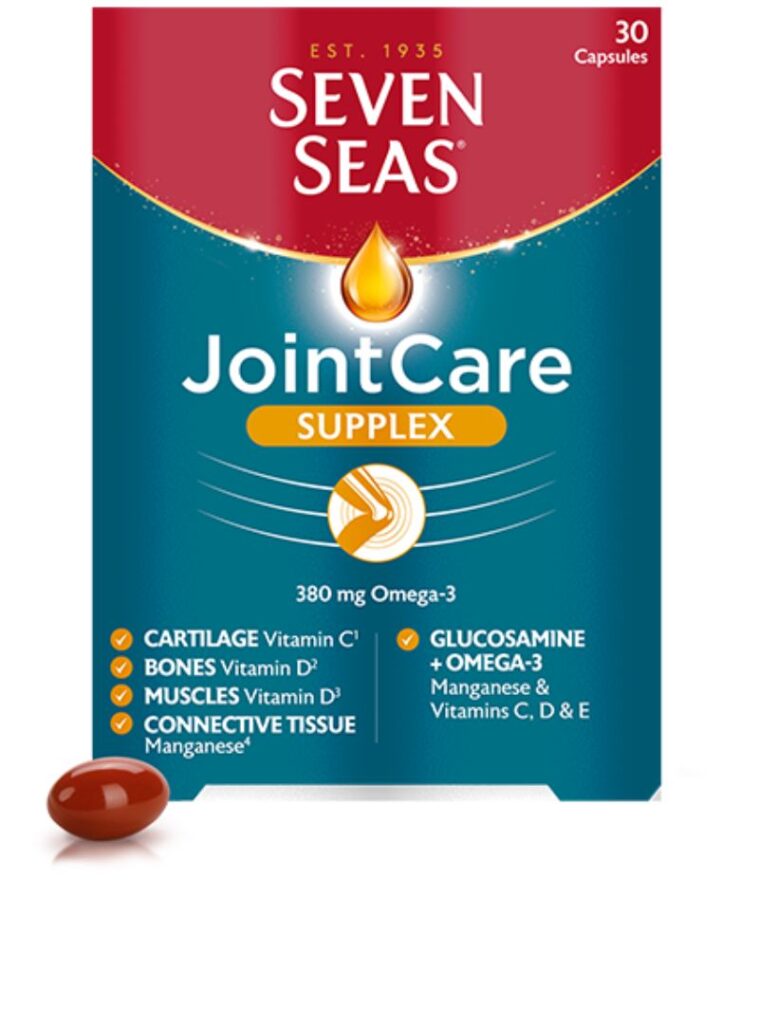  | Seven Seas JointCare Supplex | Best Anti-Joint Pain Trio | ↓ Jump to Review |
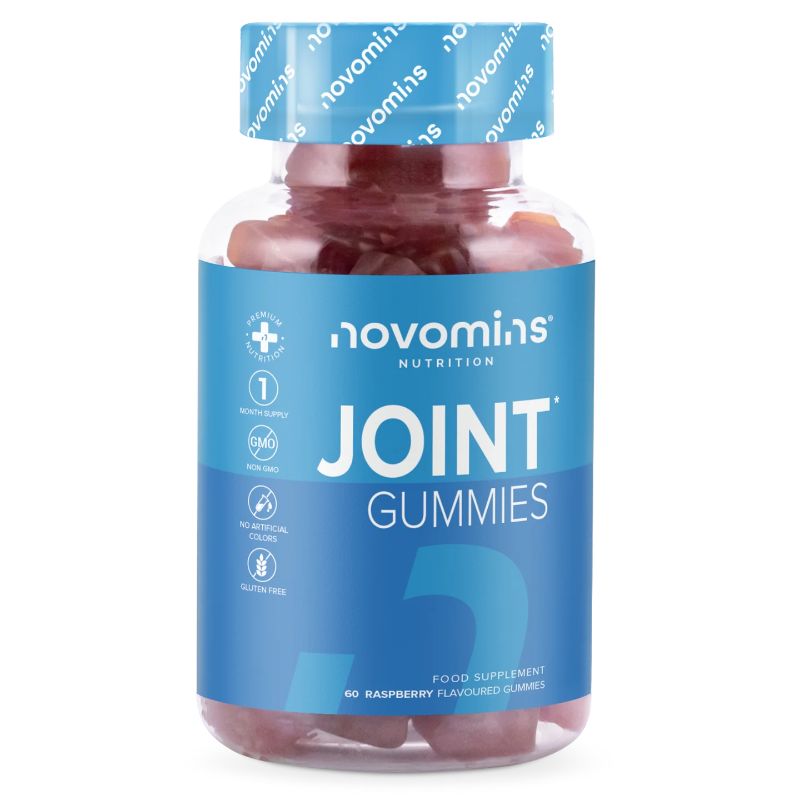  | Novomins Joint Gummies | Best Pill Substitute | ↓ Jump to Review |
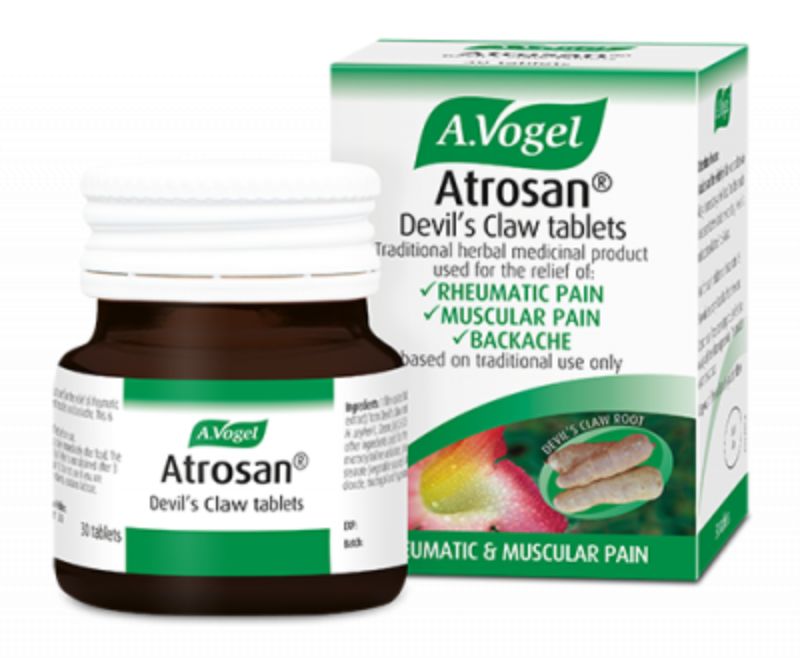  | A.Vogel Atrosan Devil’s Claw Tablets | Best Traditional Supplement | ↓ Jump to Review |
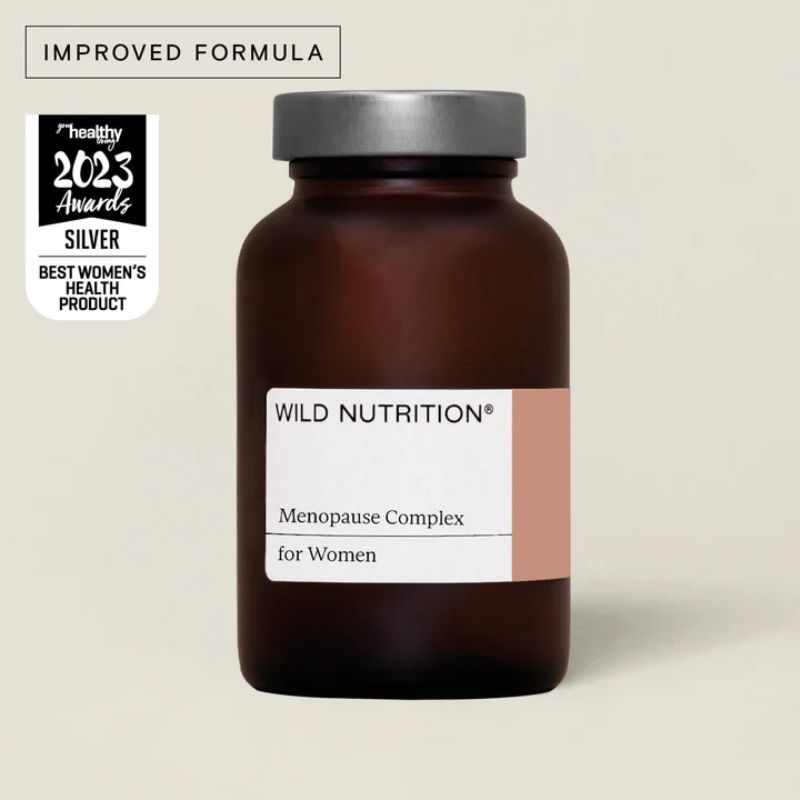  | Wild Nutrition Food-Grown Menopause Complex | Best for Women Allergic to Dairy | ↓ Jump to Review |
1. Best budget supplement: Vitabiotics Menopace Calcium/Menopace Plus
When it comes to anti-joint pain menopause supplements, Vitabiotics Menopace has made a name for itself as a high-quality yet affordable choice.
Manufacturer overview
For over 40 years, London-based Vitabiotics has been a pioneering British company focused on health and research. Their innovative healthcare products span nutrition and women’s health, developed using cutting-edge research, adhering to pharmaceutical standards, and ensuring top-tier technological expertise.

Components and mechanism of action
Prioritizing bone health during menopause is crucial, and Menopace Calcium offers a comprehensive solution with its blend of 24 essential nutrients, including 700mg of calcium. Combining all the advantages of Menopace, this supplement supports bone and joint health, heart health, and hormonal balance.
On the other hand, Menopace Plus, a variant of Menopace Calcium, offers exactly the same health benefits, with the addition of active botanicals. These supplements are enriched with natural extracts like Sage and Green Tea, plus vitamin B1, which provides additional cardiovascular benefits.
Pros
- Free from drugs or hormones
- Promotes better sleep, giving joints and bones more time to relax
Cons
- Unusually large pills
- May cause some discomfort during swallowing
2. Best anti-joint pain trio: Seven Seas JointCare Supplex
Seven Seas Joint Care Supplex offers a triple approach to menopausal joint pain and general menopause symptoms.
Manufacturer overview
Seven Seas is known for delivering superior products sourced from the ocean, held to the highest standards. The ‘Ocean Gold’ commitment entails expertly sourced Omega-3 products since 1935, placing the customer at the core of their endeavors and unwavering dedication to quality ingredients. Their pledge includes responsible sourcing of fish oils, ensuring sustainability.


Components and mechanism of action
Seven Seas Joint Care Supplex’s power trio consists of vitamins C and D and manganese. Vitamin C supports collagen formation, which is crucial for maintaining healthy cartilage and joint function. Vitamin D contributes to strong bones, and manganese aids in connective tissue support, promoting overall joint health. Although the supplement is popularly used by women suffering from joint pain, anyone seeking good joint health and well-being can benefit from it.
Pros
- Includes turmeric in the JointCare Supplex & Turmeric variant
- Small, easy-to-swallow pills
Cons
- Can cause gastric issues
- Not for women allergic to crustaceans and fish
3. Best pill substitute: Novomins Joint Gummies
Some people have issues taking pills, but that won’t be a problem with Novomins Joint Gummies, which are not only convenient but also delicious.
Manufacturer overview
Novomins is a prominent nutrition company based in the UK, specializing primarily in producing gummy vitamins and supplements. The company was specifically intended to revolutionize the industry by making supplements that are easier to consume, such as gummies, instead of traditional pills or tablets.


Components and mechanism of action
Novomins Joint Gummies are specially formulated for people with active lifestyles. These gummies have been enriched with key ingredients, including glucosamine, turmeric, vitamin C, manganese, vitamin D, and vitamin E. These gummies are a great and ideal addition to a health-conscious routine, especially for menopausal women who need as much joint support as possible.
Pros
- Free from gluten, artificial coloring, and flavoring
- Non-GMO
Cons
- Comes in refreshing, fruity flavors that help women feel their best
- No discomfort during swallowing
4. Best traditional supplement: A.Vogel Atrosan Devil’s Claw Tablets
First used in the early 1900s to reduce pain and inflammation, the traditional Devil’s Claw herb treatment now comes in a bottle and a brand — Atrosan Devil’s Claw tablets.
Manufacturer overview
With a legacy in natural healthcare, A. Vogel Atrosan focuses on herbal remedies. Their flagship product, Atrosan Devil’s Claw, addresses joint discomfort and is particularly popular among menopausal women who prefer a traditional, natural, and holistic approach toward joint pain management.


Components and mechanism of action
Menopausal women experiencing achy bones, inflamed muscles, or sore joints can take A.Vogel Atrosan Devil’s Claw tablets for relief. Made from cultivated Devil’s Claw extracts, this product is often used as a health supplement in relation to osteoarthritis, rheumatoid arthritis, and even stomach problems.
Pros
- Can be taken with other pain-relief medicines without adverse drug interactions
- One tablet provides significant relief
Cons
- Must not be taken on an empty stomach
- Unsuitable for people with gastric issues
5. Best for women allergic to dairy: Wild Nutrition Food-Grown Menopause Complex
Wild Nutrition Menopause Complex is a health supplement specifically designed for dairy-allergic menopausal women.
Manufacturer overview
Wild Nutrition is a food supplement brand recognized for its female nutritional health expertise. The company focuses on food-grown supplements, which have shown higher bioavailability and retention than isolated synthetics.


Components and mechanism of action
Wild Nutrition Food-Grown Menopause Complex is a dairy-free supplement that resolves menopausal joint pain and other common menopause symptoms. If you’re allergic to milk, this one’s for you. The product supports hormone balance, emotional health, immunity, and bone strength. Enriched with Dong Quai, it helps regulate female hormones. As an Ashwagandha and magnesium supplement, it enhances energy, mood, and mental resilience.
Pros
- Free of artificial nutrients
- May be taken with or without food
Cons
- High price point
- Not for those taking hormone prescriptions
Other Supplements That Fight Menopausal Joint Pain
Many other nutrients can contribute to effectively managing joint pain aside from the ones mentioned above. These include the following:
Omega-3 fatty acids
Omega-3 fatty acids, abundant in flaxseeds and fatty fish like salmon, possess anti-inflammatory properties that help manage menopausal joint pain. They reduce the production of inflammatory compounds, thereby alleviating pain and stiffness in the joints. Incorporating Omega-3s into the diet may provide relief by promoting joint health and flexibility.
Chondroitin
Chondroitin is naturally found in cartilage and often used in joint health supplements. In managing menopausal joint pain, chondroitin helps maintain the structure of joint tissues and inhibits enzymes that contribute to cartilage breakdown. Chondroitin can potentially reduce joint pain and improve overall joint function by promoting cartilage integrity.
SAM-e (S-adenosylmethionine)
SAM-e, a naturally occurring compound in the human body, involves various biochemical processes, including reducing menopausal joint pain. It contributes to the synthesis of proteoglycans, which are essential for maintaining healthy cartilage. SAM-e may also have mood-enhancing effects, which could indirectly impact pain perception.
Boswellia serrata
Boswellia serrata, or Indian frankincense, contains active compounds that have anti-inflammatory properties. These compounds may help manage menopausal joint pain by suppressing the production of inflammatory molecules in the body. Boswellia extract is often used as a natural remedy for joint discomfort and could relieve individuals experiencing joint pain during menopause.
Ginger
Ginger contains gingerol, a bioactive compound with anti-inflammatory and analgesic effects. Ginger as a dietary supplement may help reduce menopausal joint pain by mitigating inflammation and easing discomfort. Additionally, ginger’s antioxidant properties can contribute to overall joint health and potentially enhance mobility for those experiencing joint pain.
Bromelain
Bromelain, abundant in pineapples, contains anti-inflammatory and analgesic enzymes. It can aid in managing joint pain by reducing inflammation, easing swelling, and improving joint function, making it a potential supplement to alleviate menopausal joint discomfort.
MSM (methylsulfonylmethane)
MSM is a sulfur compound that supports collagen production and connective tissue health. By enhancing the structural integrity of joints and reducing oxidative stress, it can play a role in managing menopausal joint pain and improving overall joint flexibility.
Collagen
A key component of cartilage is collagen, which helps maintain cartilage health and reduces menopausal joint pain. Collagen’s structural role supports joint cushioning, contributing to better joint comfort and mobility.
Green tea extract
Green tea’s polyphenols, particularly epigallocatechin gallate (EGCG), are anti-inflammatory and possess antioxidant properties. These properties may help manage menopausal joint pain by reducing inflammation and protecting joint tissues from oxidative stress.
Astaxanthin
Astaxanthin is a potent antioxidant that can combat oxidative stress and joint inflammation. Its potential to modulate inflammatory pathways makes it valuable in managing menopausal joint pain and preserving joint function.
Vitamin K
Vitamin K contributes to bone health and may indirectly support joint health by maintaining bone density. Strong bones provide a foundation for healthy joints, potentially reducing menopausal joint pain and promoting overall musculoskeletal well-being.
Quercetin
Quercetin is a flavonoid with anti-inflammatory effects that can help manage menopausal joint pain. Quercetin offers a natural approach to easing joint discomfort by inhibiting inflammatory processes and reducing pain signals.
While these supplements can potentially manage menopausal joint pain, individual responses can vary. Consulting a healthcare provider before adding any new supplement to your regimen is advisable, especially if you have existing medical conditions or are taking other medications.
Additionally, supplements should be considered part of an extensive approach that includes a balanced diet, regular exercise, and other healthy lifestyle choices.
Understanding the Relationship Between Menopause and Joint Pain
We mentioned declining estrogen levels as the reason behind joint pain in menopause, but there’s more to this relationship than you probably know. During menopause, you’ll find yourself navigating through a shifting landscape of physical changes, and among these, the connection between menopause and joint pain becomes evident.
Physical process
Menopause, typically occurring in women 45 to 55 years of age, marks the end of your reproductive years. As your body adjusts to the declining estrogen levels during this phase, joint pain can emerge as an unexpected consequence.
Estrogen, an essential hormone, is a natural anti-inflammatory agent, aiding in maintaining healthy joints. As estrogen levels decrease, this protective effect weakens, potentially leading to heightened inflammation and joint discomfort.
Moreover, estrogen contributes to collagen production, a vital element for cartilage and joint tissue integrity. The reduction in collagen synthesis during menopause can impact joint cushioning and lubrication, resulting in stiffness and pain.
The natural process of aging exacerbates this relationship. With age, cartilage thins and loses elasticity, causing joints to experience wear and tear. This, combined with hormonal shifts, contributes to the onset of menopausal joint pain.
While knees, hips, and the spine are commonly affected, menopausal joint pain can manifest in any joint. Its intensity varies widely from person to person, ranging from mild discomfort to significant hindrance in daily activities.
The psychosocial aspect
Menopausal joint pain, while often attributed to physical factors, also has strong psychosocial dimensions that significantly impact its perception, experience, and management. The interplay between psychological and social factors can either exacerbate or mitigate the intensity of joint pain during this phase of a woman’s life.
Factors related to mental health and wellness, such as mood disorders, emotional distress, and anxiety, have been found to amplify the perception of pain. The hormonal fluctuations accompanying menopause can lead to mood swings and heightened emotional responses, affecting pain sensitivity. Individuals experiencing increased stress might exhibit heightened pain responses due to the stress-pain connection.
Furthermore, the psychosocial impact of menopausal joint pain extends beyond the physical sensations. Women might experience diminished quality of life, disrupted sleep, and reduced physical functioning — the hidden dangers of life with pain. The chronic nature of joint pain can also lead to feelings of isolation and depression, especially if it interferes with daily activities or social interactions.
Social factors also play a role. Lack of understanding and support from family, friends, and even healthcare professionals can exacerbate the psychological toll of menopausal joint pain. Stigmatization of the symptoms of menopause might deter women from seeking help or expressing discomfort, further isolating them.
On the positive side, psychosocial interventions can offer holistic relief. Cognitive-behavioral therapy (CBT), mindfulness techniques, and relaxation exercises have been shown to reduce pain perception by addressing psychological distress and altering pain-related thought patterns. Support groups can provide an avenue for women to share their experiences, gain validation, and receive coping strategies from others navigating similar challenges.
As it is, menopausal joint pain is not solely a physical phenomenon. The psychological and social aspects of pain perception, emotional response, and coping strategies are crucial in understanding and managing this condition. A comprehensive approach that acknowledges the psychosocial dimensions of menopausal joint pain can lead to more effective interventions and improved overall well-being for women experiencing this discomfort.
Thankfully, recognizing the connection has led to effective strategies for managing menopausal joint pain, centering on the intricate dynamics of hormonal changes and aging. By taking a proactive approach that includes lifestyle adjustments, proper nutrition, and medical guidance, any woman can better manage menopausal joint pain, ensuring a vibrant and active quality of life.
Tips for Menopausal Joint Pain Relief


Supplements can help women handle menopausal joint pain, but overall lifestyle changes can significantly impact their relief. Part of these changes is practicing specific steps that help reduce or prevent joint pain, such as the following:
Add anti-inflammatory foods to your diet
Incorporating foods rich in anti-inflammatory properties can significantly alleviate menopausal joint pain. Focus on a diet abundant in fruits, vegetables, whole grains, fatty fish, nuts, and seeds. These foods have rich stores of omega-3 fatty acids and antioxidants, which ease inflammation and discomfort. Eliminating excessive sugar and processed foods can also enhance the positive impact of an anti-inflammatory diet on joint health.
Exercise regularly
Engaging in regular low-impact exercises can greatly aid in managing menopausal joint pain. Activities like walking, swimming, and gentle yoga can improve joint flexibility, strengthen surrounding muscles, and enhance overall mobility.
Physical activity promotes the release of the happy hormones, endorphins, which act as natural pain relievers. Prioritize consistency and consult a healthcare professional to tailor an exercise routine that suits your individual needs and limitations.
Get fit
A healthy body weight is crucial to joint pain management. Excessive weight gain places additional stress on joints, exacerbating discomfort. Reducing poundage is possible through a healthy diet and regular exercise. Even modest weight loss can significantly improve joint pain and day-to-day comfort during menopause.
Build a solid core
A strong core offers stability and support to the entire body, including joints. Engage in core-strengthening exercises like planks, bridges, and Pilates to enhance posture and reduce strain on joints. A well-developed core contributes to better body mechanics, minimizing the risk of injury and joint pain. Integrating these exercises into your routine can yield long-term benefits in managing menopausal joint discomfort.
Stay hydrated
Adequate hydration is often underestimated in its impact on joint health. Water lubricates joints and cushions cartilage, reducing friction and enhancing mobility. Proper hydration supports overall bodily functions, including those that maintain joint health. Ensure a consistent intake of water throughout the day to optimize joint function and minimize the risk of joint pain during menopause.
Conquer Menopausal Joint Pain With These Top-Rated Supplements
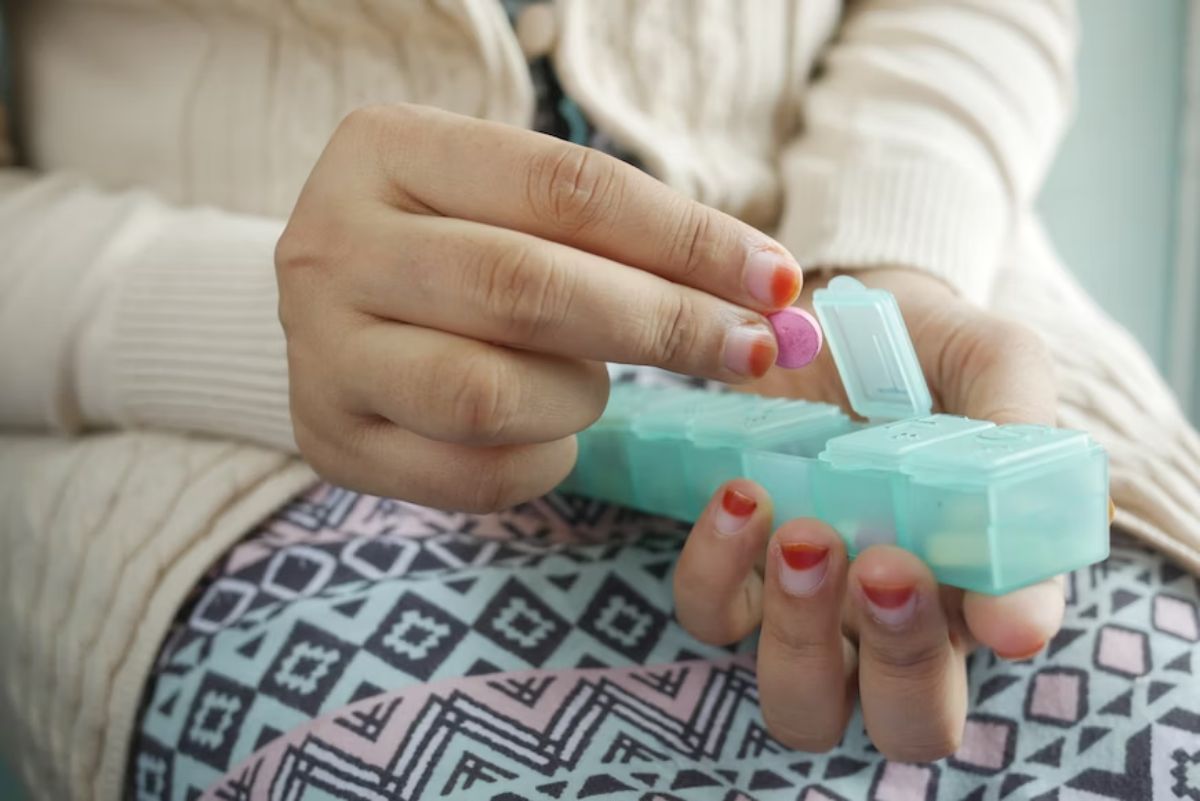

Image by Towfiqu Barbhuiya on Unsplash
As a woman, you go through various changes in your body during menopause, and one of the effects of the process is joint pain. Luckily, women have an abundance of supplements to choose from in managing the condition. Of course, it’s a matter of finding the product that best matches your needs and current state of health.
If your joint pain has been caused by an accident, such as an animal attack or a car mishap due to another person’s negligence, don’t hesitate to seek assistance from a legal professional. They can recommend the necessary steps to ensure you are fairly compensated as a victim.
Frequently Asked Questions on Back Pain Relief Products
Will menopausal joint pain ever go away?
Menopause stems from imbalanced hormone levels characterizing this female biological process. Once this imbalance is corrected, joint pain and other menopausal symptoms, such as vaginal dryness or high blood pressure, typically resolve on their own. However, it’s essential to determine whether these symptoms are, in fact, due to menopause and not some other underlying medical condition.
Do orthopedic shoes help with joint pain?
Orthopedic shoes provide relief for joint pain by offering specialized support and cushioning. They align the feet and ankles to reduce strain on joints, including the knees, hips, and lower back. They also provide arch support, shock absorption, and ergonomic features that evenly distribute body weight — all these help menopausal women and all individuals suffering from joint pain.
How can you tell joint pain from muscle pain?
While joint pain can be hard to distinguish from muscle pain, they are two distinct conditions with unique qualities. For instance, muscle pain often comes with spasms and is relieved by rest or movement as accumulated toxins like lactic acid are released. On the other hand, joint pain takes a while to treat because of the inflammation of the affected joint. Because joints go far deeper than muscles, the pain will likely continue even during rest.
When should I see a doctor for menopausal joint pain?
Menopausal women shouldn’t be surprised to experience joint pain, but investigating further might be necessary if the condition persists despite treatment. According to arthritis experts, joint pain that lasts more than three days or several episodes within a month will likely benefit from a trip to the doctor. Menopause is only one of countless conditions causing joint pain.
Disclaimer: This article only seeks to inform readers and does not intend to provide legal or medical advice. Consulting with a qualified professional is best for resolving any legal or medical issues you may have.
Experienced an accident that left you with joint pain?
As a woman, you remain in charge of your health, even while experiencing menopause symptoms like joint pain. However, if you develop this symptom from an unnatural cause, such as an accident caused by another party, know your rights and fight for them.
At The Personal Injury Center, we help ensure that you know and receive the compensation you deserve. Let us connect you with a personal injury lawyer who can examine your case at no cost to you. Their expert recommendations will guide you on the next steps to take toward rightful compensation.



